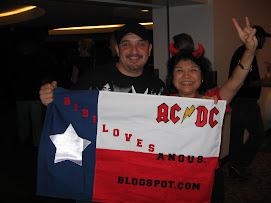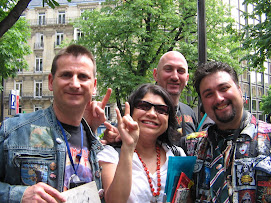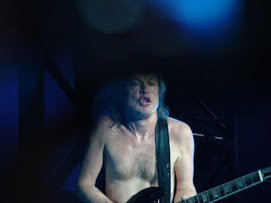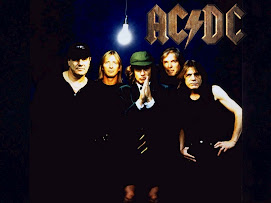Bibi often has elaborate plans for days off, but Thursday just sort of led to seeing Lincoln. I know my faithful readers are surprized that I went to a Steven Spielberg movie. What was the last Spielberg movie I wanted to see? Had high hopes for the last Indiana Jones movie, but really, how could that movie work? The script was contrived and weak at best--although using the lost English explorer bit was clever since David Grann's excellent book was so recent at that time--but, Shia LaBeouf, please. Disappointing. I joke that Spielberg's best movie is/was Jaws (still watch that one on July 4) and I liked 1941 (some really funny parts, especially Slim Pickens. That bathroom scene still makes me double up, laughing), loved the first and third Indy movies, liked Empire of the Sun--thanks again for Christian Bale's notable debut--can still watch Jurassic Park and enjoy it, but Spielberg has always been a hit or miss director for me. And once we were subjected to Schindler's List, well, it was over as far as Bibi was concerned. Yes, the world was introduced to Ralph Fiennes, effusive thanks for that, but Spielberg's heavy handedness, his insistence on thinking his audience needed to be bashed repeatedly over the head with the evil and wrongness of the Holocaust so we would be sure to get the importance of his message, honestly. Saving Private Ryan had that indelible, unforgettable early scene of the car coming to the house to give the family the bad news about the loss of the family son--exquisitely set up and photographed--but that really self-indulgent, needless beach landing scene, ugh, and the rest of the movie was like three or four episodes of Combat! strung together. We all like Tom Hanks, but it wasn't enough to offset the rest.
So, Lincoln. Of course, the production values were superb, the casting was excellent--still don't understand about casting Shia LaBeouf in the Indiana Jones movie--hard to pick a weak acting turn in this film. Some interesting choices (Sally Field, James Spader), and they took the roles and ran with them; excellent. Daniel Day-Lewis is usually great--did not disappoint. I liked the way US Grant was portrayed by the script and the actor, Jared Harris. Ever since I got a personal tour and explanatory lecture--very informative--at Grant's Tomb, I've come to think that Grant usually gets a bad rap as he's depicted in movies. Here, he's a trusted Lincoln ally and it works very well within the movie.
The opening battle scene reminded me of Glory and Saving Private Ryan, but not in such a bad way. Accepted, had to emphasize the brutality of the Civil War. There is an early scene in which Lincoln is passing the time speaking to a couple of black soldiers and then a couple of white soldiers come by who happened to be at Gettysburg and could recite the Gettysburg Address between them. Hmmmm. One of the black soldiers takes the President to task about the inequity of pay and opportunity for advancement between black soldiers and white soldiers. Hmmmm. This soldier also amazes us (and Lincoln) by reciting the end of the Gettysburg Address. OK, Spielberg didn't write it, but really?
Most of the movie is a history lesson about the passage of the 13th Amendment, the abolition of slavery. Have to hand it to the script and Spielberg: they make it edgy, make us worry that maybe it won't happen, cutting back and forth among the many players and nuances of the issue. Overarching all the frenetic activity is one's wonder that Lincoln coped with all this, directing a horrific war, depressing news of troop deaths, a less than placid family life AND he made it all come together and work. The rooms which keep him more or less imprisoned are filled with furniture, desks, books everywhere, scattered maps and papers, people clamoring to see him, overwhelming to the ordinary person--but somehow, not to Lincoln. He focuses on each person, each task at hand, looks at them closely and addresses them carefully. Really impressive. Of course, as the inevitable approaches, and that sense of foreboding is never out of the picture, you try to prepare for losing Lincoln, this very large and affably amazing presence who hated the war, hated the loss of lives, loved his family so much and cared about the country.
Bibi read a review that suggested the movie should have ended at a point just before Lincoln leaves for the Ford Theater. He'd had an excellent scene wrapping up some amendment matters, still impressing the men around him with his insight and folksy humor. He leaves the area, walking through a series of arched doorways, almost like Citizen Kane. Maybe that would have been a good place to stop. But, being Spielberg, the movie didn't and while we're spared any assassination scenes, we do have to watch as young Tad Lincoln hears that the President has been shot. Then, we're in the hotel room with the Cabinet members surrounding the death bed, Lincoln's cold, defenseless body, pitiably on display. It's all wrapped up by Lincoln's second Inaugural speech--Lincoln immortalized. Guess that's another way to end it.
No way to stop Lincoln from being an Oscar magnet, so get over it. Certainly it deserves recognition and accolades. It's a stately, sometimes majestic, view of a small section of Lincoln's life, beautifully lit, filmed, and acted. David Strathairn, Tommy Lee Jones, Hal Holbrook, John Hawkes, Tim Blake Nelson are all outstanding and deserve more than passing mention than they're receiving here. Is there an ensemble Oscar possible? Not a suprizing Spielberg movie--can he do that any more? Worth seeing on an available afternoon.
Subscribe to:
Post Comments (Atom)













No comments:
Post a Comment